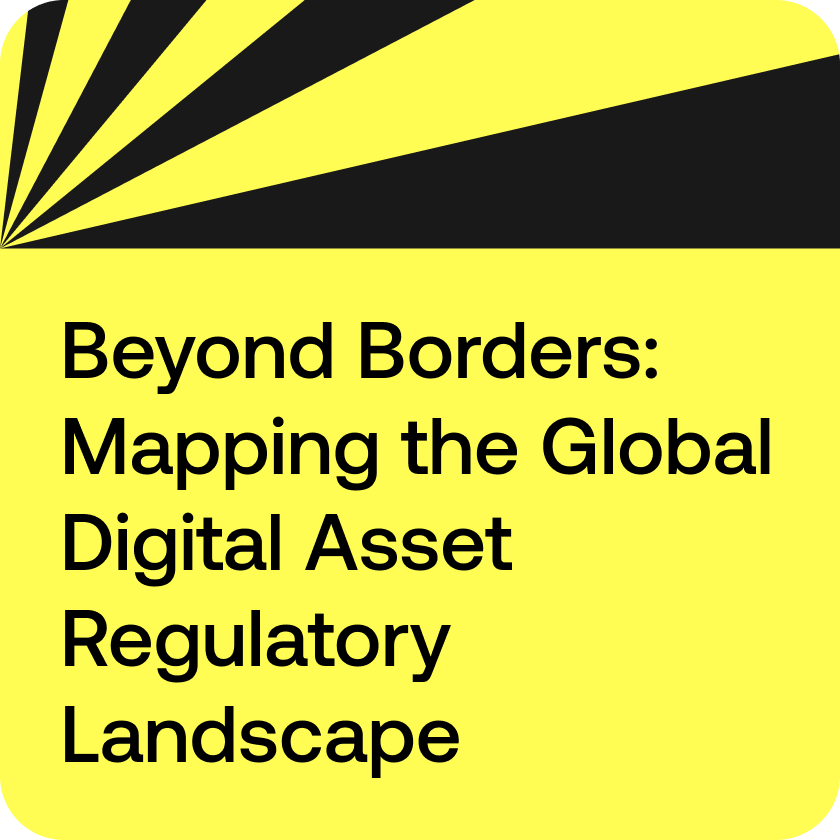Get to know and understand key KYC and AML terminology for maintaining crypto compliance within your enterprise

The Know Your Client or Know Your Customer (KYC) standard in the cryptocurrency spectrum ensures that financial institutions (FIs), businesses, and crypto service providers (sometimes known as VASPs or Virtual Asset Service Providers) identify their customers and understand the nature of the business in which their customers are active and involved.
Since cryptocurrency exchange service providers are regulated, they have the obligation to conduct KYC processes and include their KYC policies into their AML (Anti Money-Laundering) compliance programs.
The EU AML Directive and How It Changed Customer Onboarding for Crypto
In Europe, the fourth version of the Anti-Money Laundering (AMLD4) directive was enforced by law in June 2017 with a new set of rules. The new enhanced version of the fifth AML directive (AMLD5) has been in effect as of January 10, 2020, which ultimately brought new challenges for financial institutions and, subsequently, for crypto exchanges with regards to their KYC.
Crypto businesses are required to have:
- Improved understanding of customers, beneficial owners of legal entities, and their financial dealings
- Stricter Customer Due Diligence (CDD)
- Control of customer identity and sharing data with central administration
EU member states were obligated to implement the directive within two years.
KYC and Customer Due Diligence Measures for Crypto Businesses
To comply with international regulations such as FATF (Financial Action Task Force) recommendations, against money laundering and terrorist financing (TF), crypto businesses should adopt a risk-based approach to KYC procedures. Such procedures need to be implemented in the first stage of any business relationship when onboarding a new customer.
VASPs and Crypto Businesses frame their KYC policies to incorporate 4 key elements:
- Identification and Verification of the Customer
- Customer Ongoing monitoring and record-keeping
- Sanction screening
- Adverse Media & PEP screening
What does KYC for a crypto business look like, practically speaking?
KYC refers to the processes that cryptocurrency exchanges must go through to:
- Crypto businesses must be able to identify and verify the information about their customers such as name, place of birth, date of birth, registered addresses, and relevant corporate information.
- Acquire a better understanding of the activities of their potential customers and verify their legality.
- Determine the probability their customers pose when it comes to money laundering risks.
- Conduct ongoing screening against sanctions lists to make sure their customers are not subjected to international sanctions, as well as screening against the involvement of any politically exposed persons which does not lead to any illegal activity per se, but indicates the level of the risk associated to the profile of their customer.
Why is the KYC process necessary for crypto businesses (and entities indirectly connected to digital assets)?
- Client-onboarding procedures help prevent and identify money laundering, terrorism financing, and other illegal corruption schemes.
- KYC processes include ID card verification, face verification, document verification such as utility bills as proof of address, and biometric verification. This would mitigate the risks of anonymity in the transactions as well as client facing phase.
An effective KYC protects both crypto businesses from high costs of compliance penalties and reputational damage as well as the individual customers to not get harmed by any illegal activity whilst assets are protected.
KYC documents are needed at various stages of employee, shareholder, customer & partner onboarding, ongoing, and offboarding processes.
Customer onboarding:
A layered approach to customer onboarding implies that you might not need to gather every available KYC piece of data for every customer right away. Instead, a layered approach is more subtle.
Layered KYC client onboarding means collecting enough information to enable onboarding and the customer to start transacting without unnecessary friction.
This risk-based approach considers factors such as:
- Jurisdictional requirements
- Industry
- Customer country
- Transaction volume and amount
- Other customer risk profile considerations
Partner onboarding:
Partner onboarding involves providing the necessary support and information to new partners so that they can integrate your KYC program smoothly and start using it.
The partner onboarding process can include portal access, comprehensive product training, guiding partners through available regulatory frameworks, AML rules and resources, and more.
From Visual ID to Digital Verification: What’s Needed for Effective KYC In the Digital Age?
This KYC procedure should include a digital process that verifies an identity document as genuine or even authenticates the document holder through additional biometric checks such as facial or fingerprint checks.
A digital ID verification process enables financial institutions and crypto exchanges to automatically capture customer demographic data, which can be integrated into enterprise systems like CRM to:
- streamline the customer onboarding process,
- conduct ongoing due diligence and risk assessment, and
- Screen against sanctions and PEPs (Politically Exposed Persons).
Financial institutions and exchanges must maintain records on transactions and Information obtained through the Customer Due Diligence measures. These requirements should apply to all new and existing customers based on materiality and risk.
eKYC, facial recognition, and digital account opening – the latest trend in KYC?
Cryptocurrency trading apps are undoubtedly the area where facial recognition can be expected. KYC onboarding with facial recognition online is a new hot topic. The COVID-19 pandemic made us all rely heavily on digital channels and apps. Face recognition technology combines facial feature biometrics. It can be used with identification documents to confirm that the person submitting Information matches the provided identification document. Face
Recognition is considered to be more user-friendly and has been shown to have high verification rates in criminal investigations. It’s worth noting that 64% of primary checking accounts opened were done online in Q2 2020 in the United States alone, indicating the trend.
How facial recognition works for KYC (and may be the way for crypto KYC)
increased mobile app usage urges businesses to focus on mobile-first and develop fully mobile user-friendly onboarding experiences. During the identification process (a selfie) is required. The software provides a liveness detection feature to avoid spoofing attacks using a static image. Liveness detection proves that the photograph taken comes from a live person.
Financial institutions are investing in digital onboarding, including video KYC (video identification), and leverage biometrics through online and mobile channels to adapt to current customer preferences.
Considering the global and cross-border nature of crypto businesses and those operating with crypto, an online option for KYC verification is vital, is facial recognition the way to go or is there another option?
Combine your KYC procedures with an effective crypto AML analytics solution
In the next phase of the decentralized economy, having a crypto AML compliance analytics solution – to power your KYC procedures and meet global and regional regulatory requirements – will be critical. Innovation is boundless, but new blockchains and coins coming into the sector must comply or they won’t be given a space in the next-gen financial industry.
Crystal Blockchain powers a risk-based blockchain transaction readability approach to ensure compliance for crypto businesses and VASPs. Ensure clarity for risk levels associated with transactions on your blockchain & with your smart tokens.
Get in touch today at: [email protected]



